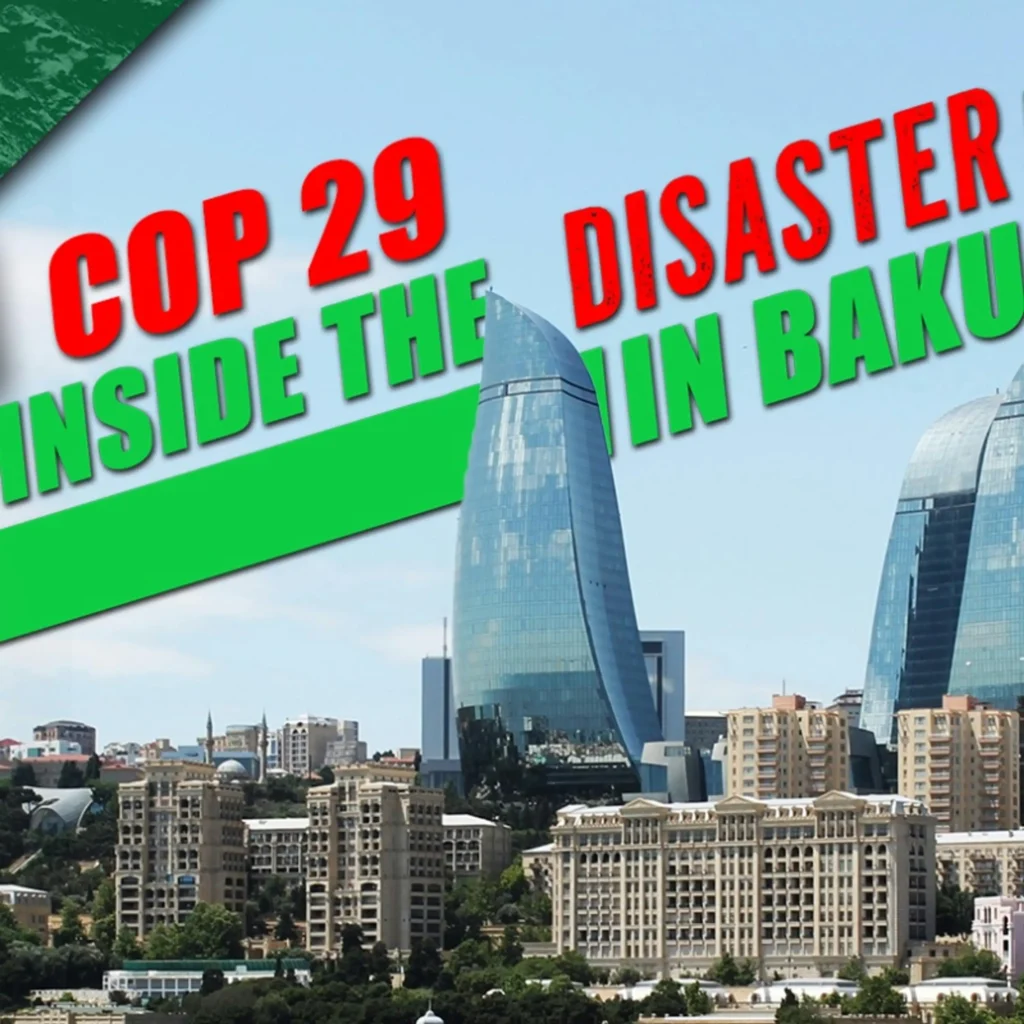Over the weekend, climate negotiators from nearly 200 nations approved the “Lima Accord,” an agreement to reduce greenhouse gas emissions by cutting back on the burning of coal, natural gas, and oil for energy starting in 2020. But the pledges are non-binding, meaning the enforcement mechanism amounts to nothing more than applying peer pressure.
The following statements from climate policy experts at The Heartland Institute – a free-market think tank – may be used for attribution. For more comments, refer to the contact information below. To book a Heartland guest on your program, please contact Director of Communications Jim Lakely at [email protected] and 312/377-4000
“Global warming advocates at the United Nations have once again done what they do best: Waste taxpayer dollars and emit enormous amounts of carbon dioxide flying bureaucrats from all over the world to resort destinations. Nations with rapidly rising carbon dioxide emissions will not reduce those emissions unless the United States and other Western democracies pay them inordinate bribes to do so. Even then, such action will have little or no discernible impact on global and regional climate.
“Fortunately, the new Lima ‘agreement’ is all talk and no substance. This is what the United Nations does best, all while sending bureaucrats and activists on lovely taxpayer-funded vacations.”
James M. Taylor
Senior fellow for Environmental Policy
The Heartland Institute
[email protected]
“The Lima Accord is being hailed widely as a ‘dramatic breakthrough’ to ‘fight climate change.’ It is nothing of the sort; it’s a ‘share the global wealth’ scheme, based on shoddy climate science.”
S. Fred Singer
Senior Fellow, Environment
The Heartland Institute
Director/Founder
Science and Environmental Policy Project
[email protected]
312/377-4000
“The whole reason to meet and establish limits on carbon dioxide emissions is moot. We’re down in hurricanes, we’re down in tornadoes. The average global temperature hasn’t changed in 18 years, yet carbon dioxide emissions continue to go up. When is enough, enough?”
Jay Lehr
Science Director
The Heartland Institute
[email protected]
312/377-4000
“For climate change true believers this is a nightmare agreement. For the first time publicly, all nations at a climate conference have stated publicly what has been true all along. All countries agreed to do something about climate change, but there’s nothing other nations can enforce. The latter was true of every previous agreement in reality, but at least on paper each participating country had binding targets and the world could theoretically levy punishments on countries not meeting their paper targets.
“The new agreement binds all countries to setting targets, bringing, for the first time, every country into the regime … but then it sets no enforcement mechanism other than through ‘shame’ and ‘peer pressure.’ We’ve all seen how well shame and peer pressure have worked on Russia in Georgia, the Crimea, and Ukraine, and on China with cameras rolling in Tiananmen Square, or on the warlords ruling various African nations as they continue to carry out atrocities and war crimes, or even the United States in the face of international condemnation for harsh interrogation techniques at Guantanamo Bay.
“As Thomas Hobbes so succinctly and presciently said centuries ago: ‘Covenant without the sword are but words with no strength to secure a [country] at all.’ Even if each country sets hard targets and fully intends to obtain them, there is nothing in this agreement that would keep them from setting targets that allow substantial growth of emissions for decades in the future before any real caps or targets become effective – or from future governments changing their minds as time and circumstances pass.
“While I believe the world needs to use more fossil fuels, not less – and that forced fossil fuel energy reductions are immoral because of the millions of people they would condemn to continued poverty and early death – if this is the ultimate framework of future climate agreements, I’m left as happy as I can be.”
H. Sterling Burnett
Research Fellow, Environment & Energy Policy
The Heartland Institute
Managing Editor, Environment & Climate News
[email protected]
“The latest round of negotiations in Lima, Peru, are a perfect example of what governments are capable of achieving when they all get together to work toward a common goal: not much.
“While this may not do much to boost the stock of the individual delegates, many of whom had hoped to walk away from the conference with a legally binding plan to cut carbon dioxide emissions before the climate negotiations scheduled for Paris in 2015, it does boost the stock for the average American.
“Efforts to reduce the amount of energy generated from fossil fuels would result in dire economic consequences and a drastic reduction in the quality of life for average Americans. Thankfully, the politicians in attendance in Lima did what politicians do best: bicker and argue without coming to an agreement.”
Isaac Orr
Research Fellow, Energy and Environment Policy
The Heartland Institute
[email protected]
312/377-4000
“The Lima Accord would be the ultimate in humor if it weren’t so expensive for all of us. Imagine 10,000 very important people meeting for more than 10 days to solve a massive problem that is going to end life as we know it on planet Earth – and all they agree to do is the best we can, country by country.
“President Obama wants to sign on to the plan because he sees his role in fighting the climate problem as a cornerstone of his legacy. The president has pledged that the United States will cut emissions by as much as 28 percent by 2025. The nation can achieve some of that under new regulations of tailpipe and power plant emissions enacted by his administration.
“But here are the funny parts of this: (1) There is no significant global warming caused by the activities of mankind. There has been no warming at all for over 18 years; and (2) The theory behind this huge frenzy of international activity – the theory that carbon dioxide emissions via our civilization’s use of fossil fuels are going to cause uncontrollable warming – has completely failed to verify. So this whole crisis is a non-crisis built on a fallacy.
“The expensive parts of this are the higher prices we are paying for food and energy, which are damaging our national economy and our personal quality of life. Experts calculate the average American family of four is currently paying more than $1,200 a year as a result of the government’s climate agenda. And, if the president is able to enact the measures in his plan that cost will increase to $4,200 per family. It is hard to laugh at the situation when it is costing you so much money.”
John Coleman
Meteorologist
Founder, The Weather Channel
Policy Advisor, Environment
The Heartland Institute
[email protected]
312/377-4000
“Some opinion leaders are asserting that the ‘firewall’ between developing and developed countries has been breached with the Lima agreement, and that now both poor and wealthy countries will be treated the same with respect to keeping their emission reduction commitments. This is highly improbable.
“The very first line in the new Lima Call for Climate Action states: ‘Reiterating that the work of the Ad Hoc Working Group on the Durban Platform (ADP) for Enhanced Action shall be under the Convention and guided by its principles.’ And those convention principles are clear: ‘Economic and social development and poverty eradication are the first and overriding priorities of the developing country Parties.’
“Developed nations do not have this option and will be held to their commitments no matter how it impacts their economies and societies. Significantly decreasing the use of fossil fuels, the source of the least expensive energy in the world, will definitely impede ‘economic and social development and poverty eradication.’ That means, ultimately, developing countries will not be held to greenhouse gas reduction targets at all.
“The firewall is as strong as ever. We are being sucked into another Kyoto Protocol.”
Tom Harris
Executive Director
International Climate Science Coalition
Policy Advisor, Energy and Environment
The Heartland Institute
[email protected]
312/377-4000
“The London Daily Times stated it best when the COP-20 ended in Lima, Peru Sunday morning: ‘During a tense final 40 hours of negotiations in Lima, Peru, a loophole was inserted into the climate change deal that allows countries to avoid the tough, economy-wide emissions targets already adopted by Britain.’
“The Lima summit produced nothing but a lot of hot air, and the final agreement guarantees nothing. The developing countries hope the meeting in Lima will lead to the next meeting in Paris in 2015 – in which developed nations, such as the United States, will be blackmailed into giving them billions of dollars. Let’s see what President Obama gives away next year to perpetuate his legacy as the major player on climate change.”
James H. Rust
Professor of nuclear engineering (Ret.), Georgia Tech
Policy Advisor
The Heartland Institute
[email protected]
312/377-4000
“The ‘climate change’ agreement that concluded the Lima, Peru gathering of the twentieth United Nations conference to reduce ‘greenhouse gases’ will be seen in retrospect as a global case of stupidity and deceit. The Earth is not warming. It has been cooling for the past 18 years in response to a perfectly natural cycle triggered by a reduction of solar radiation. Why would nations agree to respond to a non-existent event? Moreover, reducing carbon dioxide (CO2) makes even less sense. It is literally essential to all life on Earth as the gas upon which all vegetation depends. To reduce CO2 emissions by reducing the use of coal, oil and natural gas is evidence of even more stupidity since the developed world and those in need of more development are utterly dependent on these sources of energy. The planet is not running out of any of them. Life on Earth has been blessed with the benefits they provide. The agreement in Lima would threaten, not protect, the lives of everyone as we all depend on energy. The agreement is not legally binding, which means that the nations pledging to reduce energy use will continue to ignore it just as they have been doing since 1992 when this farce began. As for climate change, it has been occurring on Earth for 4.5 billion years. Get used to it.
Alan Caruba
Founder, The National Anxiety Center
Policy Advisor, The Heartland Institute
[email protected]
312/377-4000
“Another summit that kicks the can down the road. The UN is first and foremost political and they have bastardized science to achieve a political end…The UN claims that they can alter global temperature and storminess and weather events many decades to 100 years into the future. And the United Nations does not have that power — that is reserved for medieval witchcraft.
“If we did face a climate catastrophe and we had to rely on the UN, we would all be doomed! People in the developing world need carbon based energy. It has been one of the greatest liberators of mankind in the history of our planet. It brought us long life expectancy, low infant mortality. We should be here to praise carbon based energy.”
Marc Morano
Publisher
Climate Depot
[email protected]
312/377-4000
The Heartland Institute is a 30-year-old national nonprofit organization headquartered in Chicago, Illinois. Its mission is to discover, develop, and promote free-market solutions to social and economic problems. For more information, visit our Web site or call 312/377-4000.













